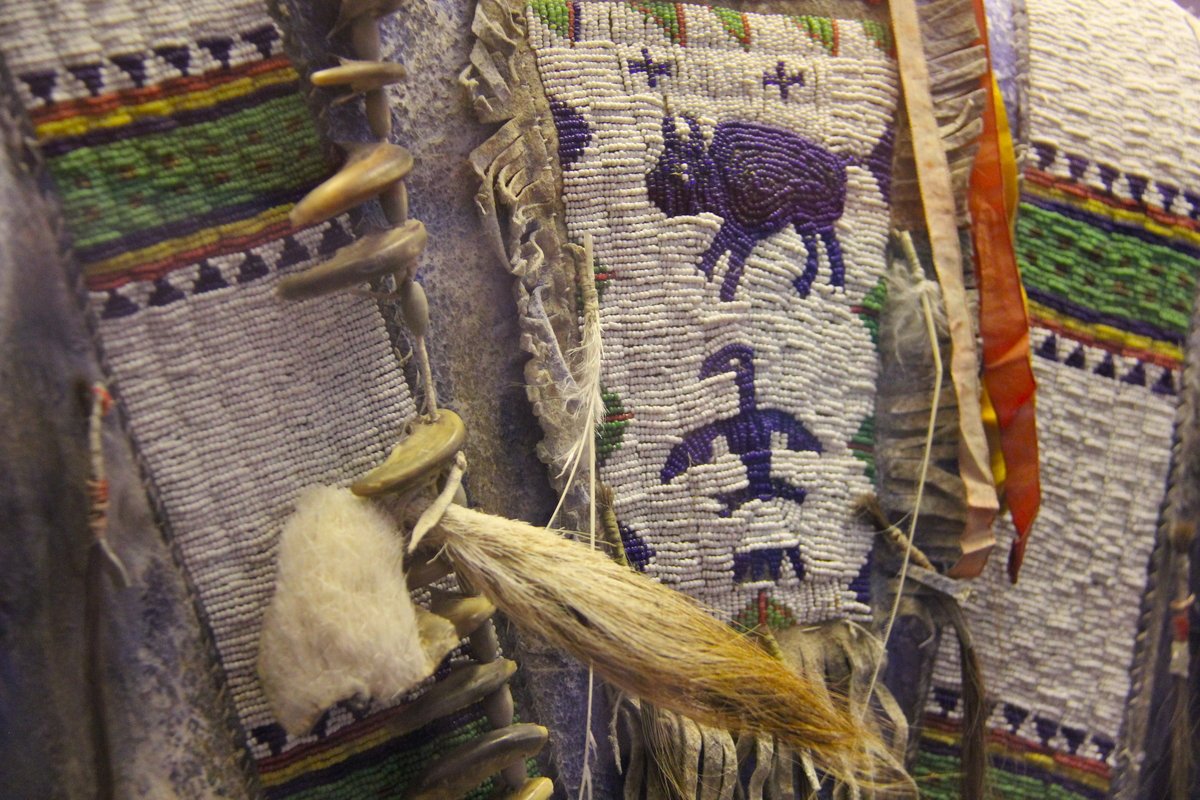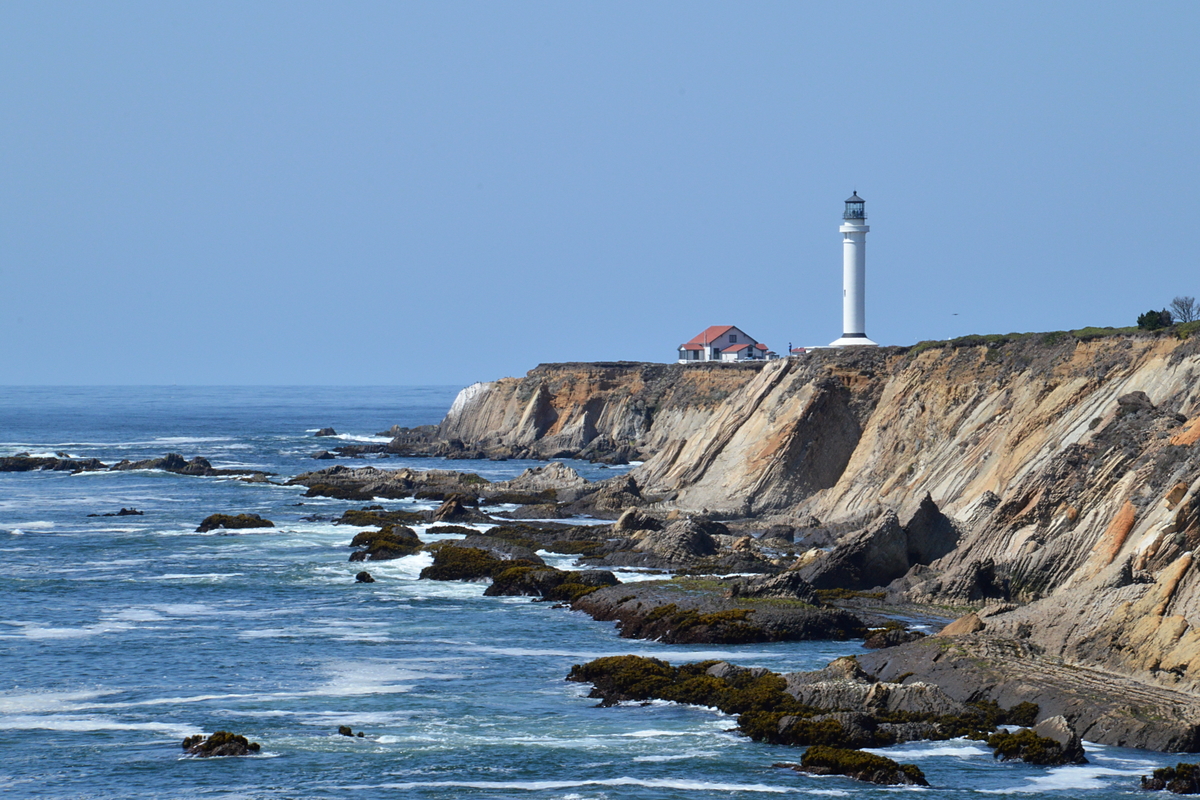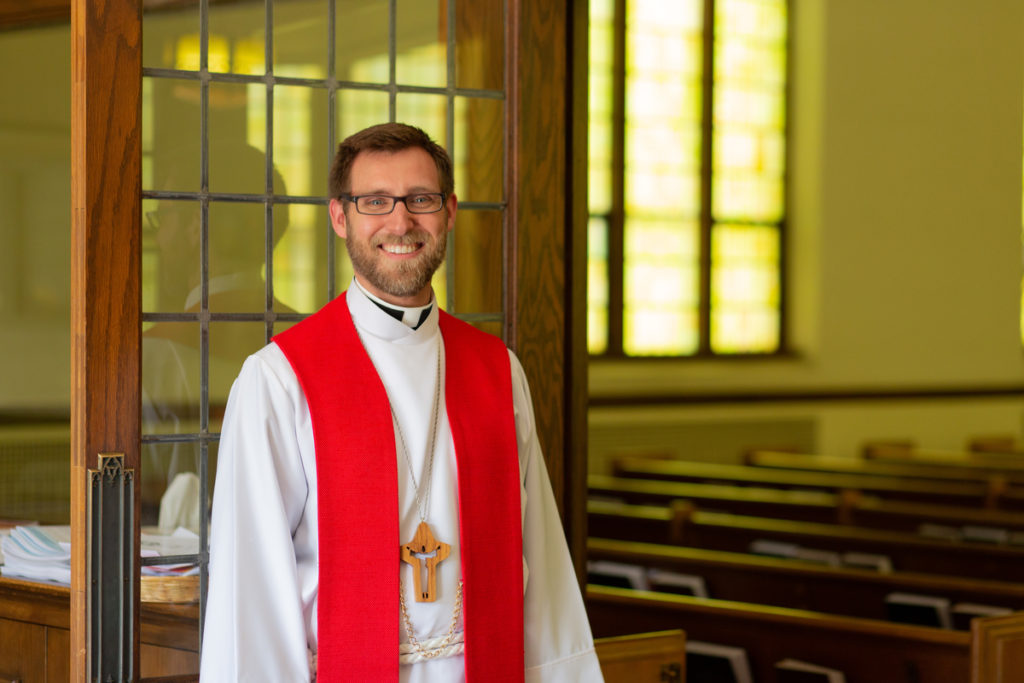On September 27 the ELCA released a “Declaration of the ELCA to American Indian and Alaska Native People.” The document contains a full page of confessions to the American Indian and Alaska Native communities of the ELCA and in the U. S. as well as to non-Indigenous communities of the ELCA. A link to that document can be found here.
There is no doubt – there is absolutely no question – but that when settlers from Europe came to America, there were already people living here. There is no doubt – there is absolutely no question – but that treaties were broken, promises were not kept, and people – including children who were forcibly enrolled in boarding schools – were mistreated and abused. There is much that we need to repent of. We also know that all of our homes and all of our churches – and even the ELCA office building on Higgins Road – are all built on land that once belonged to someone else.
I am reminded of the account in 2 Samuel 21, when “there was a famine in the days of David for three years, year after year” (verse 1). David inquired of the Lord and asked why. The Lord replied, “There is bloodguilt on Saul and on his house, because he put the Gibeonites to death.” The Israelites had made a treaty with the Gibeonites when they first entered into the Promised Land (Joshua 9). Even though the Gibeonites had tricked the Israelites into making that treaty, Joshua knew that they still needed to keep their promises. But several generations later – during the time of King Saul – those promises were broken. Israel needed to deal with the fact that they had not kept their word. They had to face what they had done. It was only after they had done so that God would again bless them. 2 Samuel 21: 14 tells us that after Israel made things right, “God heeded supplications for the land.” It makes you wonder if part of the reason for all of the problems within our country – as well as within the ELCA – is because of promises that have been broken.
But there are a couple sentences within that declaration/confession that make me deeply troubled. In the first paragraph it says, “We have devalued Indigenous religions and lifeways.” In the second paragraph it says, “We confess that we are complicit in the annihilation of Native peoples and your cultures, languages, and religions.” I completely agree that it is severely wrong to devalue other people and their lifeways. It is absolutely wrong to annihilate other peoples and their cultures and languages. What I want to address is the ELCA’s confessing its devaluing indigenous religions. I read that statement in the light of the “Declaration of Inter-Religious Commitment,” which the ELCA Churchwide Assembly overwhelmingly approved in 2019. A link to that document can be found here.
What concerns me about the ELCA’s Declaration of Inter-Religious Commitment is the section entitled, “Limits on our knowing.” In that section it says, “We must be careful about claiming to know God’s judgments regarding another religion.” Instead it says that “all we know, and all we need to know, is that our neighbors are made in God’s image and that we are called to love and serve them.” Certainly our neighbors are made in God’s image. Certainly we are called to love and serve them. But since it is a fact that people who are not followers of Jesus also love and serve their neighbors, then the ELCA is saying that the church of Jesus has nothing unique, valuable, and important to offer to other people.
If the church of Jesus has nothing unique, valuable, and important to offer to other people, then I could see why we might feel the need to confess devaluing other religions. But if the church of Jesus does have something unique, valuable, and important to offer to other people, then it is not that we devalue other religions. Rather it is that we value people. We love people, and we want people to know and love Jesus and to know that Jesus loves them. We would not be loving and serving our neighbors if we did not tell them about Jesus.
Are the only options either devaluing other religions or feeling that as followers of Jesus we have nothing unique, valuable, and important to offer? The account of the apostle Paul in Athens in Acts 17 says that there is another option. Please notice five things from this account.
First, verse 16 says that Paul was “deeply distressed to see that the city (of Athens) was full of idols.” Are we deeply distressed over the ways in which people place so many other things before and above God?
Second, in verse 22 Paul began his message in front of the Areopagus on a very positive note. He did not blast the people for all of their idols. Instead he said, “Athenians, I see how extremely religious you are in every way.” In our relating to people who do not know Jesus, do we begin on a positive note and do we maintain a positive spirit?
Third, we see in verse 23 that Paul had taken the time and had put forth the effort to become familiar with their culture and the objects of their worship. He said, “As I went through the city and looked carefully at the objects of your worship.” Do we do the same?
Fourth, he found a connecting point. As Paul looked carefully at the objects of the Athenians’ worship, he came across an altar with the inscription, “To an unknown god.” (verse 23) Do we look until we can find a connecting point? Can we identify the aspects of our culture that reveal the spiritual yearnings and longings of people?
Fifth, he was able to relate to the people by quoting from their poets, who had said, “In him we live and move and have our being” and “We too are his offspring.” (verse 28) Are we able to relate to and connect with people today by quoting from the sources that give expression to their feelings, needs, and longings?
So either devaluing other religions or feeling that as followers of Jesus we have nothing unique, valuable, and important to offer are not the only options. Like the apostle Paul, we need to recognize the spiritual yearnings and longings of people, and then we need to find ways to connect with them. We do this, not because we devalue their religions, but instead because we value people. We love people, and we want people to know and love Jesus and to know that Jesus loves them.



























Thanks again, Dennis, for an excellent “rebuttal” to a ridiculous social statement by the ELCA, one of many such “social statements, made to give the ELCA a “good feeling”, a type of spiritual “breast-beating” to justify themselves, but in reality does nothing to rectify the situation. Similar statements should be forthcoming from the indigenous nations and peoples who themselves massacred countless other indigenous tribes and peoples in order to advance and/or maintain their existence. It’s a “hollow statement” unless the ELCA “gives back” their property on Higgins Road to the “previous occupants” of that property. Ultimately, “who is the rightful owner” of that land? How many previous owners, occupants, and persons must be determined before the “score is settled”?
We all need to be reminded that “the earth is the Lord’s, and the fulness thereof. and they that dwell there-in”. All other attempts at reconciliation are meaningless and unfruitful,
until and unless we confess and acknowledge the true owner, the Lord God, the Almighty.
Glad you address these issues; , until we “get it straight” in the Courts of the Lord.
Bob Logan
Yes, to be consistent the ELCA needs to give the property on Higgins Road back to the original owners of the land.
Another bell ringer, Dennis! The elca is proficient at taking Biblical CONTENT, planting it into the questionable, ever changing CONTEXTS (soils) of slogans, abbreviations, propaganda, perversions, etc. and calling it caring, justice and ministry. Would they knew how to link Scriptural content to the unchanging context of eternal Truth, THEN apply it to the hurts and injustices suffered by individuals and societies held in the lockjaw grip of sin. It would certainly put a lid on the drivel from pontificates named and un-named that good souls are asked to stomach and expected to support. Thanks again for your clarity and faithfulness, Dennis.
Thank you, Mike, for sharing your good insights. I totally agree with what you said.
Where has the unique Gospel been lifted up publicly in the ELCA? ELCA needs to define what they mean by grace. The specific uniqueness is based on the death and resurrection of Christ…for others. He died in place of sinners and for sinners. “If we have been united with him (ie.Jesus) in a death like his, we shall certainly be united with him in a resurrection like his.” Where are the gems of this unique Gospel taught in the “papal” part of this church?
For the ELCA the Gospel is based upon Diversity, Equity, and Inclusion. It is not based upon the cross and the resurrection of Jesus.
Thank you Dennis for your response, I am a refugee from the ELCA because of the muddled theology on human sexuality. This statement on indigenous people reminds me of that reasoning. I have not studied the history of development of the reservation system so my understanding is based on my experience growing up in North Dakota. I did visit the reservations to play sports against high school teams and found good modern facilities including modern houses assumed to be built with federal dollars. I also met at the University of North Dakota indigenous teachers from the reservation schools that were on scholarships to earn master degrees in education in hopes of improving the educational experience at the schools. Whether the reservation residents were required to live in modern homes instead of their historical housing and required to stay on the reservation is not known to me. However, I don’t believe indigenous people were forced to attend Christian churches or to read the Bible if they chose to do. So what are we to do as Christians, perhaps Micah 6:8 KJV offers a path for the Christian church ” He has shewed thee, O man what is good; and what doth the Lord require of thee, but to do justly, and to love mercy, and to walk humbly with thy God.” So we are to live based upon God’s love and mercy, not by precepts of a secular society which changes based upon individual feelings. If it feels good, do it!
Yes, God has given us in Micah 6: 8 the way in which we are to live. And Micah makes it clear that this is not God’s suggestion for us. Rather it is His requirement of us.
Correct, Dennis. I remember learning in the ELCA that the cross is not an actual event but a symbol for justice. We cannot get the cross until we stop police brutality, the inclusion of the LGBTQIAEE+ to say it is not a sin defined by God but the culture in the time it was written, and getting rid of capitalism.
Wow! Was that said by the seminary professors, the students, the assigned reading, or all three? If the cross is a symbol of our working for justice and full inclusion of LGBTQ+ people, stopping police brutality, and getting rid of capitalism, then the cross is a matter of our works, not God’s grace.